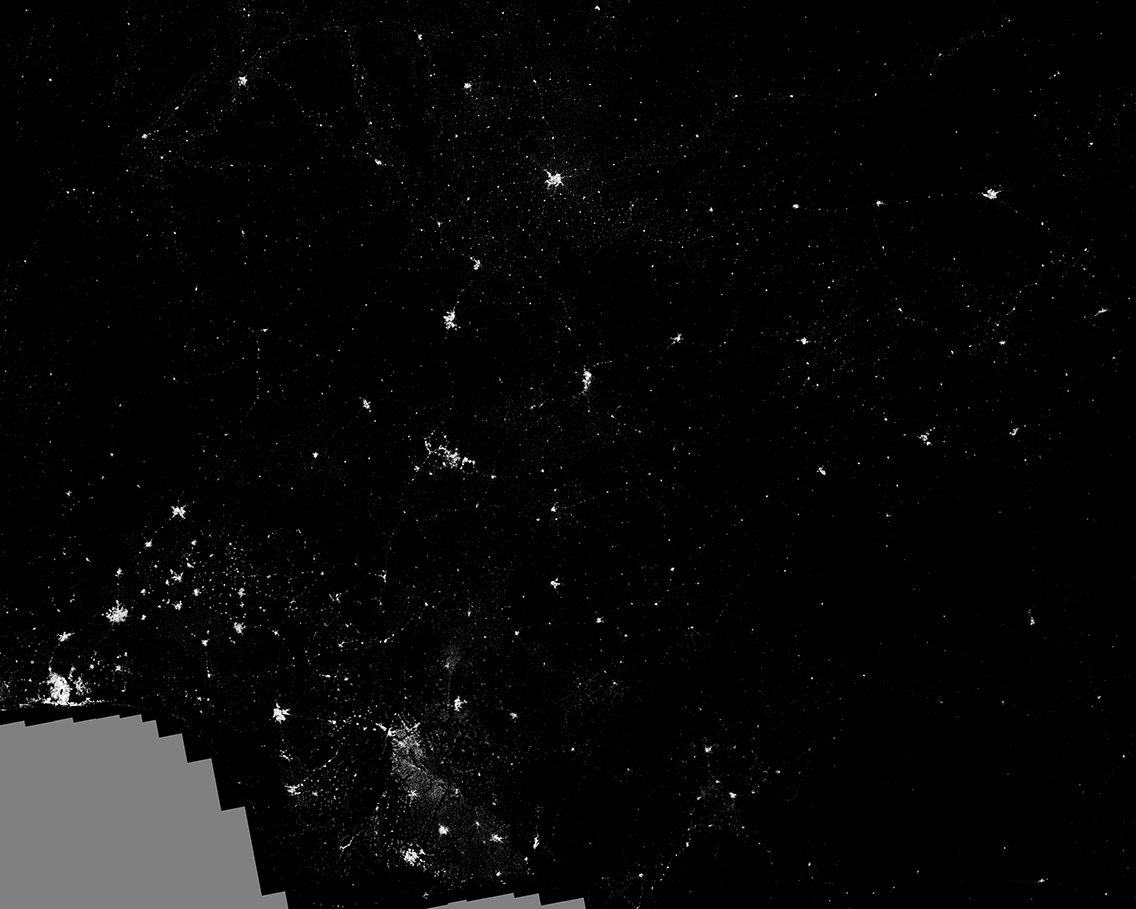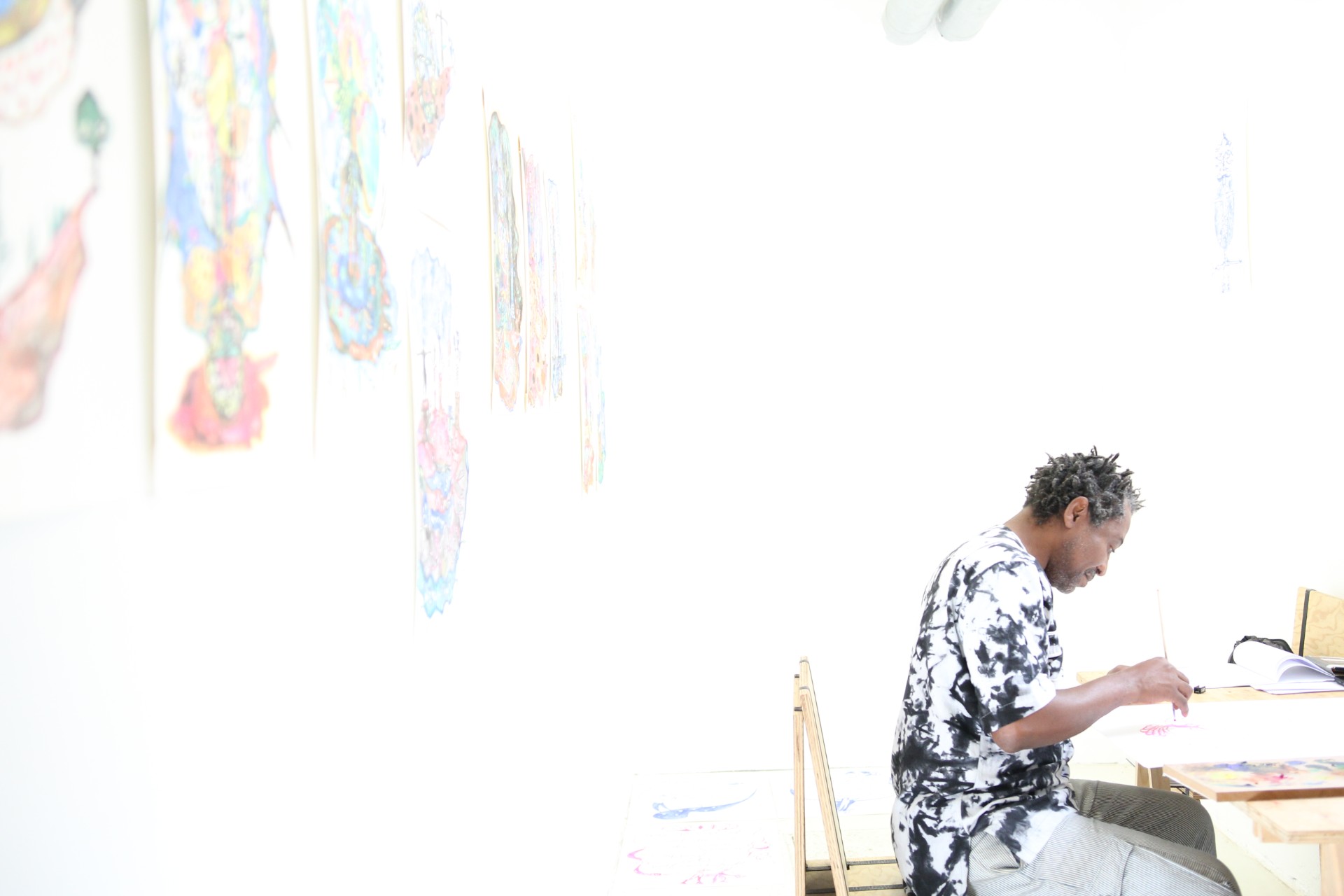Residenzprogramm Berlin-Lagos 2020

Ausschreibung
BewerbungsSCHLUSS 22.03.2020
Kontakt Lotta Schäfer lagos@zku-berlin.org
The Goethe-Institut Nigeria, in cooperation with 16/16 residency in Lagos and the Berlin art institutions, ZK/U – Center for Art and Urbanistics, SAVVY Contemporary and Galerie Wedding, is offering residencies for artists / curators from Lagos and Berlin. The call is aimed at artists and curators living and working in Lagos or Berlin. Both selected residents will meet, exchange and present their findings to the Berlin audience together.
Residency for Lagosians in Berlin (1.09.-30.11.2020): A residence program for an artist / curator from Lagos takes place in Berlin. Through the collaboration of ZK/U – Center for Art and Urbanistics, SAVVY Contemporary and Galerie Wedding this residence offers, above living and working in Berlin, insights into the work of three important Berliner cultural institutions. The resident has diverse opportunities for consultation and networking and can present their work to the public on various occasions.
Residency for Berliners in Lagos (16.09.-31.10.2020): A residence program for an artist / curator from Berlin takes place in Lagos. Through the cooperation of Goethe-Institut Nigeria and 16/16, this residence offers not only the possibility of working in Lagos, but also insight into the work of two important cultural institutions in Lagos, a variety of consultation and contact opportunities as well as the possibility of a final presentation at 16/16 and a workshop in and around the Lagos Island community.
On the topic of the 2020 residency exchange Lagos/Berlin: This year´s applications are encouraged to be inspired by topics on and around archives , their limitations, power structures and contemporary manifestations. The focus lies on living archives through which practices, skills and knowledge can be shared for the common good. For further in-depth description, kindly see full concept below.
Dates
In Lagos: 16.09.–31.10.2020
In Berlin: 01.09.–30.11.2020
Costs
The following costs are covered by the exchange program: accommodation and studio in Lagos or Berlin, flight costs Berlin-Lagos/Lagos-Berlin (economy class), visa fee, per diems. Please note that group/duo applications are not possible, due to limited funding resources and space in the residencies.
Application material
(please submit in English for all partners to understand)
1. fill out application form including project proposal around the subject matters evolving around vulnerable archives, silenced histories or realities that need to be rewritten. (max. 800 words) and short bio (max 300 words)
https://forms.gle/NCMj6jqZQ7w2ZkyL7
2. CV + proof of residency in Berlin (Anmeldung) or Lagos (Address)
3. portfolio, publications pdfs with a selection of 2–3 relevant projects including descriptions (max. 15MB and 12 pages combined) over wetransfer.com to lagos@zku-berlin.org
Note: All relevant information and FAQs about the respective residency programme are provided on the institutions website: For residency in Lagos please check 16/16 (https://www.16by16.co/residency-program) and for residency in Berlin ZK/U (https://www.zku-berlin.org/practical-information/). If you can’t find there what you are looking for, kindly send us an email. Applications until March 22, 2020. The scholarship holders will be selected by an independent jury in April 2020 in Lagos and Berlin.
On the topic of the 2020 residency exchange Lagos/Berlin:
We very much encourage applications to also engage with the topic of archives themselves, its limitations, power structures and contemporary manifestations. The focus lies on living archives through which practices, skills and knowledge can be shared for the common good.
For individuals travelling to Lagos the archive must be taken into the context, where oral histories and skills are collectively shared and more importantly practiced in the everyday. As individuals travelling to Berlin would be working closely with the ZK/U – Center for Art and Urbanistics and SAVVY Contemporary, one could also engage with their existing themes and projects.
The question of the archive and of archiving is one of the biggest challenges of small institutions, which are by default fragile and vulnerable, and which are constantly interrogating what an institution can be. What is at stake here is, on the one hand, the notion and infrastructure of the archive and its processuality and performativity.
ZK/U Berlin has developed the learning-platform CityToolBox, which allows future professionals and dedicated citizens to gather practical knowledge for bottom-up activities in the urban field, connects them among each other, broadens awareness for challenges in the city, and most of all, empowers them to become agents of change and self-employed protagonists in the urban arena. Other projects evolve around the living archive and self-archiving practices within the residency context.
At SAVVY Contemporary the focus lies primarily on further developing the infrastructure of some of our existing archives: SAVVY.doc, which accommodates rare cultural and political publications from around the world, especially philosophies from the non-West; the Colonial Neighbours archive, which hosts objects, anecdotes and traces of German colonial histories; the Performance archive, which deliberates on possibilities of archiving the ephemeral; the film-makers exhibition series, which acts as a form of archive to display that which is chiseled out of a film before it gets to the silver screen; the weekly film program, which engaged with the political potential inscribed in film-making for more than a year; and last, but not least, the archiving of events and exhibitions over the last years. At 16/16, the archive must be questioned from the position in Lagos and its communities. What does an archive really mean here? In what ways do people already engage with the archive, does archival information exist? Who is it by? Within the post-colonial context of modernising Nigeria, the archive must exist in new ways, especially in practice. What could some of these models around collective skill-sharing, resource banks and creative commons look like?
For the Lagos version, there is a strong focus on developing a practice and for developing art that serves a social function as well. Artists with a community-centred approach to designing and building will therefore thrive more in this environment and workshop proposals are especially welcome.
Beginning with this draft you can feel free to expand your ideas or apply to your individual artistic practice or research in regards to vulnerable archives and commemorating the past. The topics mentioned above are open to interpretation and also abstract proposals would be taken into consideration in the application process.
For further information in regards to the individual projects evolving around archives of the partner institutions:
– City Tool Box by ZK/U – Center for Art and Urbanistics
– archive of publications at ZK/U – Center for Art and Urbanistics
– Colonial Neighbours, a project by SAVVY Contemporary
– SAVVY.doc / documentation centre and archive
Information about Project Partners
Goethe-Institut Nigeria: The Goethe-Institut e.V. is the globally active cultural institute of the Federal Republic of Germany. The Goethe-Institut Nigeria organizes and supports a wide range of events for the presentation of German culture in Nigeria and implements projects for intercultural exchange with Nigerian partners. It offers consultation and contact opportunities during the residencies.
www.goethe.de/ins/ng/de/index.html
16/16: Our residency program is a platform designed for knowledge and exchange in Lagos, Nigeria. Artists working in varied media (visual, performance, digital, writing, alternative techniques, cooking, bartending) spend one month at 16/16 during which they are given space to experiment, explore and build their professional and creative networks. There is a strong focus on flexibility for every resident; 16/16 customises programming by leveraging collaborations and interactions for artists with members of our diverse and robust community built over the years. These interactions are not exclusive to the art world and can take on different forms so that each is a unique experience.
https://www.16by16.co/residency-program
ZK/U – Center for Art and Urbanistics: ZK/U is a residency and platform for creative and urban experimentation. Through its glocal program, ZK/U explores and critiques existing knowledge and practices in urban agglomerations as a springboard to individual and community self-empowerment. With insights and expertise gained over years of collective work as an artist-run initiative in Berlin and beyond, ZK/U fosters the expansion of resilient and inclusionary networks that can rise to the challenges of city life in the 21st century. In order to grasp the often perplexing complexities engendered by worldwide interconnections, local initiatives are examined on the global scale be it in Berlin or Buenos Aires. The residency program is open to artists, scholars and practitioners that concern themselves with the phenomenon of ‘the city’. It is possible to participate in bi-monthly presentations and consultations within a group of international residences.
SAVVY Contemporary | The laboratory of form-ideas was founded in 2009 by Bonaventure Soh Bejeng Ndikung as an art space, discursive platform, place for good talks, foods and drinks – a space for conviviality. SAVVY Contemporary situates itself at the threshold of notions of the West and non-West, to understand and deconstruct them. SAVVY Contemporary has realized a kaleidoscope of art exhibitions, performances, film screenings, lectures, concerts, readings, talks, dances. It has established a participatory archive on German colonial history, a performance arts documentation centre, a library, a residency program, as well as educational projects with schools. The art space engages in its neighborhood's history and socio-political realities which are entangled with the reflections and discourses of the project.
The Gallery Wedding – Room for Contemporary Art is an urban gallery in Berlin Mitte. Here the binding final presentation takes place. It is located in the middle of an urban and multicultural district between Müllerstraße and Leopoldplatz in a historic building of Expressionism. Just as the building was part of a utopian social design, Galerie Wedding follows the claim to be a place for contemporary forms of artistic expression and forward-looking socio-political models. In 2020 Solvej Helweg Ovesen and Natasa Ilic will be responsible for the curatorial program. Under the exhibition title Soft Solidarity (SoS) they show four solo exhibitions of emerging artists living in Berlin with an extensive audience program.
Visual Lagos_GUF footprint: from 2012-2014 by Global Urban Footprint

